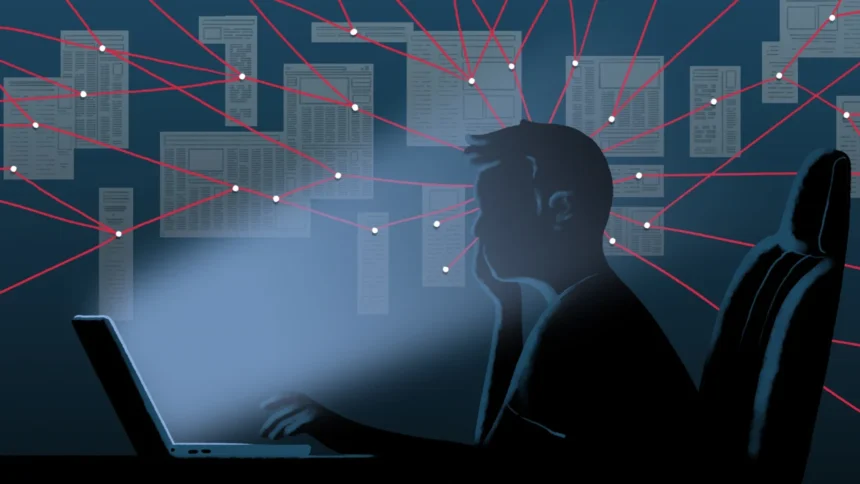Technology vs. cat-eating myths.
With the presidential debate just behind us, you’ve likely encountered a surge of misinformation and conspiracy theories. One of the most outlandish claims swirling in the media was made by Republican presidential candidate Donald Trump and his running mate, Ohio Senator J.D. Vance. They alleged that Haitian immigrants in Ohio were eating domestic pets, a grotesque accusation that has been thoroughly debunked by local officials, who state unequivocally that it is untrue. Nevertheless, the internet is teeming with this falsehood, spreading like wildfire.
This isn’t a new phenomenon. Experts have long been concerned about how swiftly conspiracy theories can gain traction. The viral nature of these false claims makes them difficult to combat, and some research suggests that even when confronted with solid evidence, many conspiracy believers remain unmoved.
However, a new study published in Science provides a glimmer of hope. The research explored an intriguing approach to countering conspiracy theories: Could AI chatbots help debunk them? The findings suggest that, under the right conditions, they just might.
How AI Is Taking on Conspiracy Theories
In this groundbreaking study, researchers sought to test whether AI-driven conversations could help people who believe in conspiracy theories reconsider their stance. Participants engaged in one-on-one dialogues with a generative AI chatbot, OpenAI’s GPT-4 Turbo, about a specific conspiracy theory they subscribed to.
The study involved 2,190 participants, each of whom picked a popular conspiracy theory to discuss, ranging from the claim that the 9/11 attacks were orchestrated by the U.S. government to the idea that COVID-19 was engineered by global elites to control the population.
After these conversations, researchers saw a 20% reduction in belief in the conspiracy theories discussed—meaning that one in five participants no longer adhered to the theory they brought up. Even more impressively, this decrease in belief remained two months after the interaction with the chatbot.
Why Does AI Work? The Psychology Behind It
David Rand, one of the study’s co-authors and a professor at MIT, believes the findings highlight an encouraging reality: People’s minds can be changed with facts. Despite the often pessimistic view that conspiracy theorists are immune to evidence, this study demonstrates that many are still receptive to truth.
“Facts and evidence do matter to a substantial degree to a lot of people,” Rand emphasized.
One key factor that may explain the chatbot’s success is its ability to quickly present accurate information. Conspiracy theories often come with rapid-fire claims, “weird esoteric facts,” and a flurry of unreliable links that are difficult to refute on the spot. A generative AI, however, has the advantage of responding instantly and comprehensively with fact-based information.
Additionally, AI chatbots aren’t hampered by the interpersonal dynamics that can make real-world conversations challenging. If you’re trying to debunk a conspiracy theory held by a close friend or family member, personal emotions or pre-existing tensions can get in the way. The chatbot, however, approaches these discussions calmly and professionally, without the baggage that comes with human relationships.
In fact, the AI was designed to foster a sense of rapport with users. It didn’t dismiss their views outright but rather validated their curiosity, which in turn made them more open to engaging with evidence.
The Trust Factor: AI and Belief Change
One of the most intriguing aspects of the study was how participants’ trust in AI played a role in the outcome. Those who had more faith in AI were more likely to change their beliefs after the chatbot conversation. However, even participants who were initially skeptical of AI still exhibited a notable decrease in their conspiracy theory belief.
The researchers were also careful to ensure that the chatbot was providing accurate information. A professional fact-checker reviewed the claims made during the AI interactions and rated nearly all of them as true. None of the information provided by the chatbot was found to be false, which lends credibility to the potential of AI as a reliable tool for combatting misinformation.
The Future of Debunking Conspiracy Theories
The implications of this study are significant. While traditional efforts to counter misinformation often involve painstaking fact-checking and personal conversations that can be fraught with tension, AI offers a scalable and consistent alternative.
Rand and his co-authors envision a future where chatbots like this one could be integrated into social media platforms, automatically intervening when conspiracy theories start to trend. Imagine searching for information about a viral rumor and being met with an AI-powered chatbot that provides clear, factual responses instead of misleading content. This could become a powerful tool in reducing the spread of misinformation online.
However, the researchers are also cautious. As with any technology, there is a risk of misuse. A chatbot trained on biased or inaccurate sources could easily become a vehicle for spreading conspiracy theories instead of debunking them. Rand acknowledged this risk, noting that the future depends on how responsibly these AI models are developed and deployed.
The Power and Pitfalls of AI
In an era where misinformation is rampant and the lines between fact and fiction are increasingly blurred, AI chatbots may offer a new weapon in the fight against conspiracy theories. The results of this study suggest that, under the right conditions, people can and will change their minds when presented with accurate, compelling information—even if it comes from a chatbot.
That said, the road ahead isn’t without its challenges. As AI becomes more integrated into our information ecosystems, ensuring that these tools are used ethically and accurately will be crucial. The potential for bad actors to harness AI for nefarious purposes is real, but with careful oversight, AI could become a valuable asset in promoting truth and countering the spread of conspiracy theories.
For now, curious individuals can test the researchers’ findings for themselves by engaging with DebunkBot, an AI tool designed to help users examine their beliefs against factual evidence. It’s a small, but promising step toward using technology to bridge the gap between belief and reality.
As Rand put it, “If people are mostly using these foundation models from companies that are putting a lot of effort into really trying to make them accurate, we have a reasonable shot at this becoming a tool that’s widely useful and trusted.”
Whether or not AI can fully solve the problem of conspiracy theories remains to be seen, but for the first time, there is hope that it can play a pivotal role in changing how we tackle misinformation in the digital age










